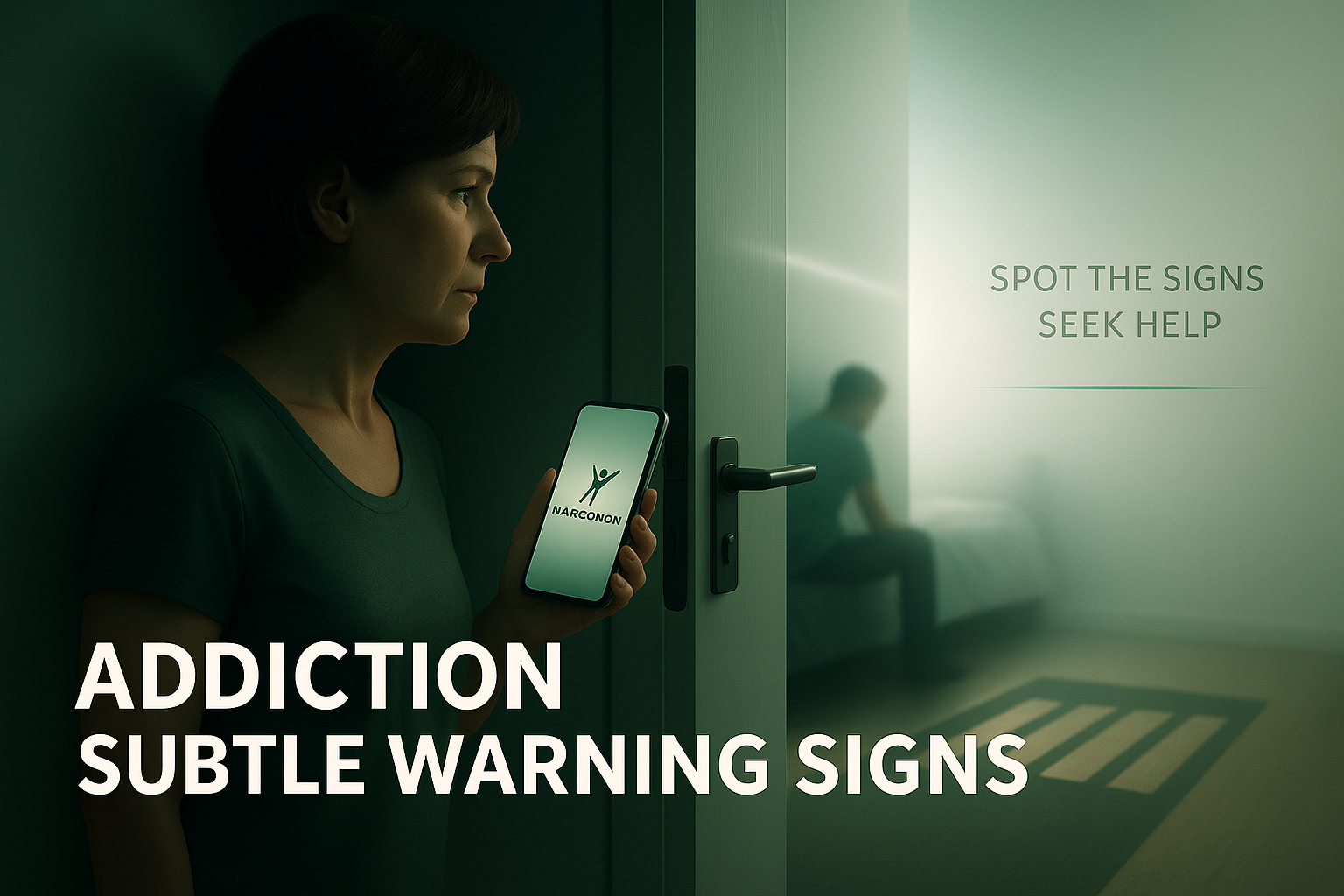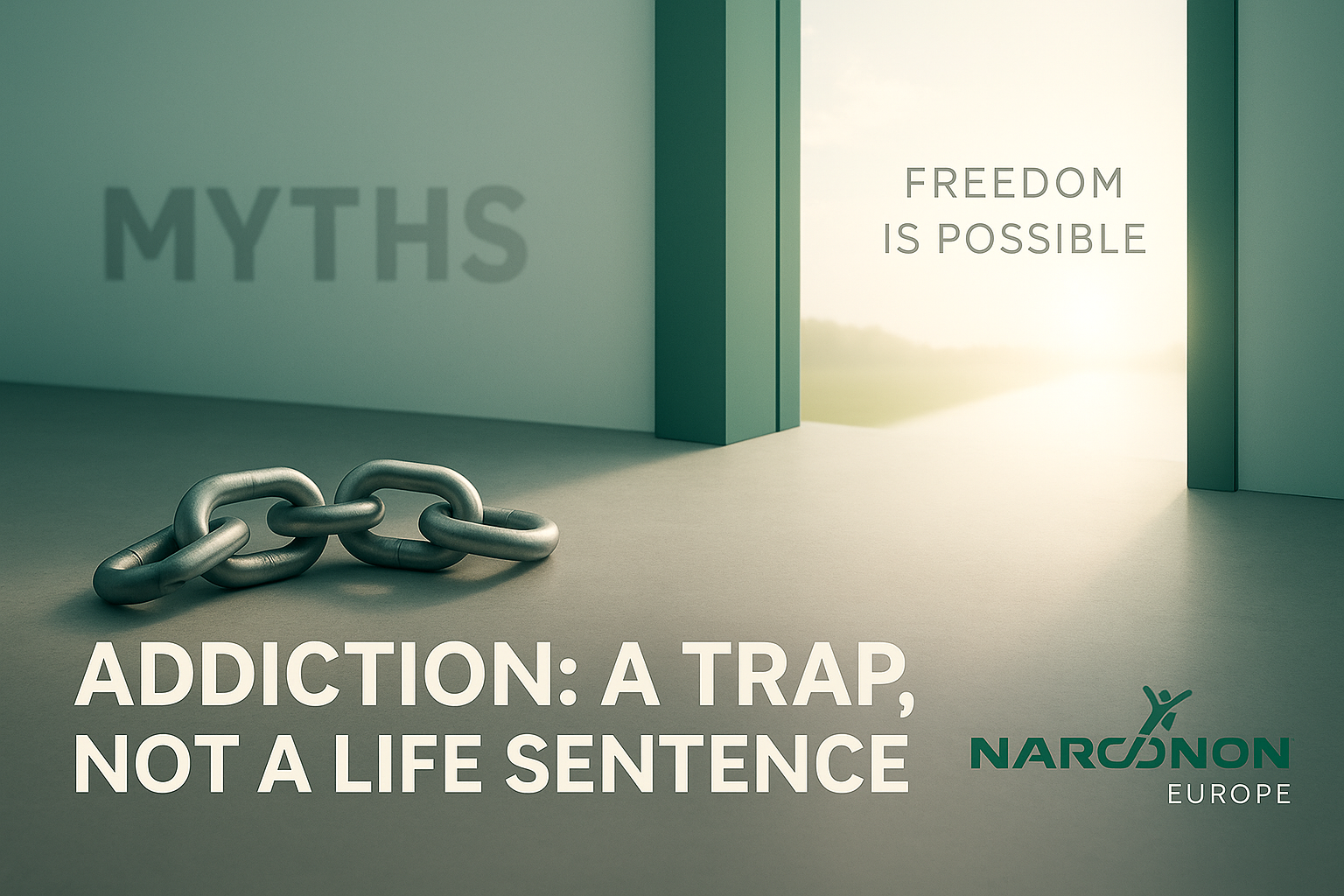Addiction Doesn’t Always Show Up Clearly
Many families realize too late that a loved one has fallen into addiction. It often develops gradually, making early warning signs difficult to recognize. Here are 10 key indicators to watch for so you can take action before it’s too late.
10 Key Warning Signs of Addiction
1. Unexplained Mood Swings
Frequent mood changes, excessive irritability, or sudden apathy may be signs of substance use. Many substances directly affect the brain’s emotional regulation systems, causing unpredictable behavior.
As addiction progresses, these mood disturbances typically worsen, further altering brain chemistry and making recovery without proper help increasingly difficult.
2. Loss of Interest in Usual Activities
When someone suddenly abandons hobbies, passions, or their social circle without reason, it’s a significant warning sign. Activities and relationships that once brought joy become secondary to obtaining and using substances.
This shift occurs because addiction changes the brain’s reward system. The intense but false pleasure provided by substances begins to override natural rewards from healthy activities.
3. Increasing Isolation
A person struggling with addiction tends to withdraw from family and friends to avoid confrontation about their problem. This isolation becomes a protective mechanism to hide their substance use.
They might create excuses to avoid family gatherings, decline social invitations, or physically isolate themselves—spending unusual amounts of time alone or frequently disappearing without explanation.
4. Missing Valuables or Money
Addiction is expensive, and as tolerance develops, the financial burden increases significantly. If money or valuable items disappear without explanation, it may indicate a desperate need for funds to maintain a substance habit.
Watch for unusual financial behaviors such as borrowing money without clear reasons, unexplained withdrawals from accounts, or missing valuables. As addiction progresses, obtaining substances often becomes the primary financial priority.
5. Sleep Disturbances
Insomnia, staying up all night, or excessive sleep can be linked to substance abuse. Different substances affect sleep in different ways, but significant changes in sleep patterns are a common warning sign.
Look for unusual sleeping hours, complaints of insomnia, excessive daytime sleepiness, or periods of being awake for days followed by sleeping for extended periods.
6. Neglect of Appearance and Hygiene
A sudden disregard for personal hygiene and unusual clothing choices can signal increasing drug or alcohol use. Someone who previously took pride in their appearance might stop bathing regularly or wear inappropriate clothing.
This neglect stems from the shifting priorities that come with addiction—obtaining and using substances becomes more important than self-care.
7. Work or School Problems
A sudden drop in performance, frequent absences, or lack of motivation are often linked to regular substance consumption. Problems might include unexplained absences, declining performance, difficulty concentrating, or conflicts with colleagues or teachers.
These issues typically worsen over time as the addiction takes precedence over professional or academic responsibilities.
8. Frequent Excuses and Lies
A person suffering from addiction will always find an excuse to justify their actions or state. Lying becomes a way to hide their addiction.
Pay attention to inconsistencies in stories, explanations that don’t quite make sense, or patterns of secretive behavior. Over time, maintaining this web of deception becomes increasingly difficult.
9. Noticeable Physical Changes
Weight loss, red eyes, dilated pupils, or tremors are physical signs that should not be ignored. Different substances cause distinct physical symptoms, but declining health is a common warning sign.
These physical manifestations often become more pronounced as addiction progresses and the body experiences the cumulative effects of substance use.
10. Strong Irritability When Discussing the Topic
If the person becomes aggressive or overly defensive when talking about drugs or alcohol, it often indicates an internal struggle. This disproportionate emotional reaction serves as a defense mechanism.
Someone struggling with addiction might quickly change the subject when substances are mentioned or become hostile when questioned about their behaviors.
What to Do If You Recognize These Signs
Ignoring the situation allows addiction to progress. We do not believe an addict is an addict for life or that addiction is an incurable disease. We believe in getting better.
Support and guidance are essential to help a loved one recover. A holistic, drug-free approach to rehabilitation has proven effective for many individuals. Look for programs that offer:
- A natural, non-medical withdrawal process
- A method to eliminate the physical effects of past drug usage through nutrition, exercise and detoxification
- Life skills training to help the person build a foundation for a drug-free future
Freedom from Addiction is Possible
According to the World Health Organization (WHO), addiction is one of the leading causes of preventable disease and death worldwide. The National Institute on Drug Abuse (NIDA) emphasizes that the earlier the intervention, the better the chances of recovery.
With proper support and treatment, recovery from addiction is achievable. Don’t wait until the situation deteriorates further. Freedom from addiction means a new life.



